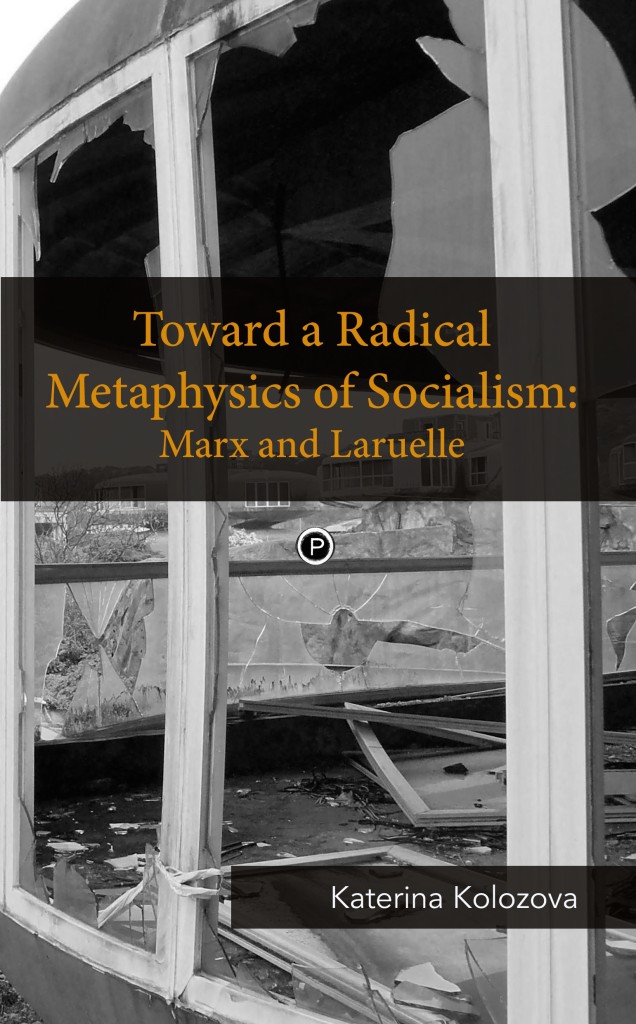Departing from the conventional readings of Karl Marx’s Capital and other of his works, by way of François Laruelle’s “radicalization of concepts,” Katerina Kolozova identifies a theoretical kernel in Marx’s thought whose critical and interpretative force can be employed without reference to its subsequent interpretations in the philosophical mainstream. The latter entails a process of abstracting a philosophical legacy — or rather, of putting it in brackets — and then codifying a history of a learned interpretation established in supposed fidelity to the theoretical project of a “master.” Interpreting the master implies a mastery of doctrinal tools, which results in establishing a catechism of the Logos of the Master. And this catechism interferes, Kolozova argues, with more direct encounters with Marx’s writings.
As we know, Marx’s rigorously descriptive language unravels the radical core of capitalist economic processes and, through that unraveling, also reveals capitalism’s necessary exploitation and subjugation of human labor. Toward a Radical Metaphysics of Socialism attempts to recuperate and emancipate the notion of metaphysics in this scenario by virtue of radicalizing thought’s encounter with the Real. Kolozova argues that this metaphysical drama is at the origin of the social and economic injustices of contemporary global economic-political realities, and she illustrates this state of affairs in discussions of the problem of wage labor, automated speculation as the core of late capitalism, the post-2008 financial crisis, the status of technology in late capitalism, sexual difference and gender, and the human and non-human body’s subjugation capitalist automation.
The real is not necessarily a physical exteriority. Rather, it is an exteriority in the sense that it is outside the reach of our linguistic intervention, appropriation and re-invention. The real is an effect that is experienced as violence (as the implacable limit to our signifying automatism), as a linguistically non-negotiable limitation, as that which Lacan would call the tuché that happens to the (signifying) automaton in the form of trauma. Such an instance is the concept of capital and the material and immaterial realities it creates. The ideology of capitalism stipulates the possibilities of any reality we can inhabit and imagine. Therefore, the exteriority which holds the status of the real is not necessarily physical. Moreover, the real is not necessarily exterior since it can be an internally experienced limit/ation to the subject’s signifying pretensions.
TABLE OF CONTENTS // Chap. 1: Introduction — Chap. 2: The Possibility of Immanent Revolt as Theory and Political Praxis — Chap. 3: Metaphysics of the Finance Economy — Chap. 4: The Metaphysics of Capitalism and the Socialist Response — Chap. 5: Technology, the Body and the Materialist Determination in the Last Instance of the Communist Society of Cyborgs


